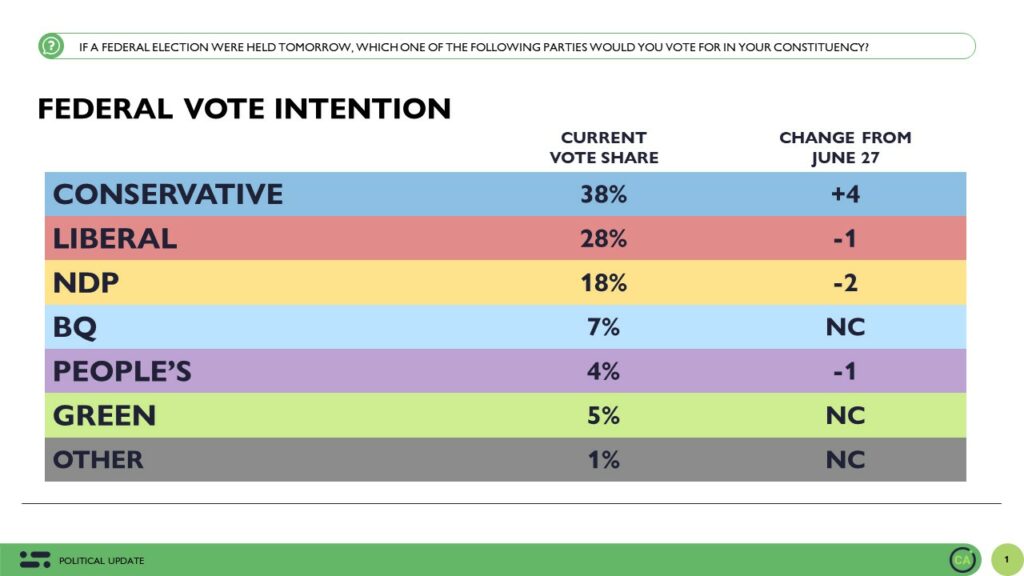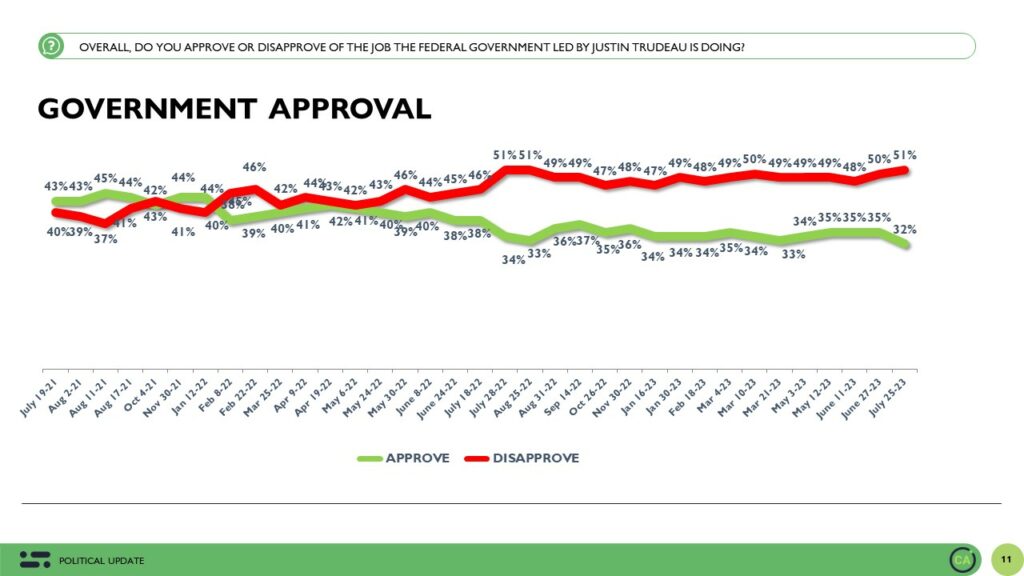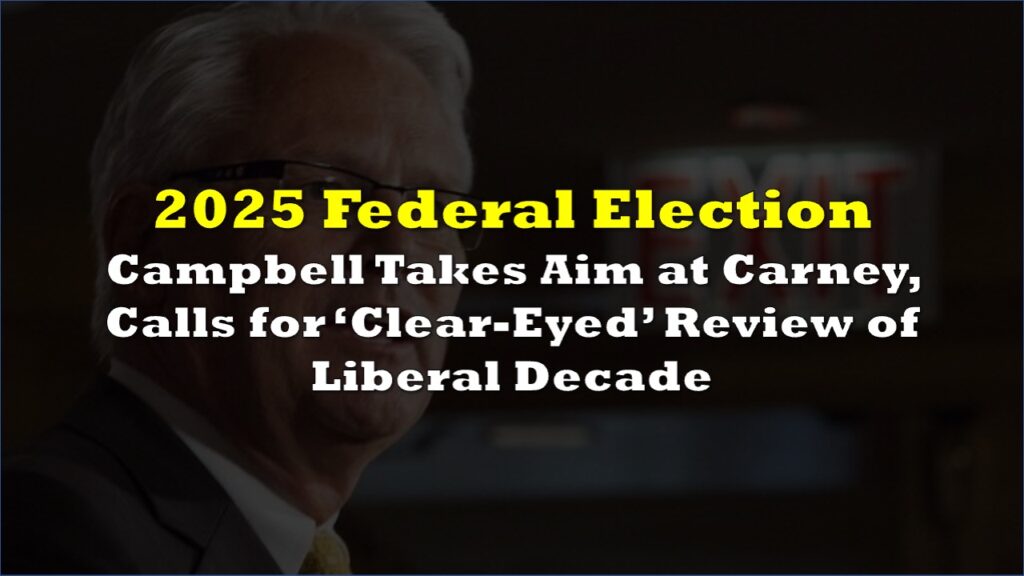Abacus Data’s national survey conducted from July 20 to 25, 2023, has revealed significant shifts in Canadian politics and public sentiment.
The new poll shows that federal Liberals and Prime Minister Justin Trudeau face a challenging national landscape. With only 19% believing the government deserves re-election and trailing the Conservatives by 10 points nationally, the Liberals have lost their advantage in Atlantic Canada and likely in Ontario as well. Additionally, the Prime Minister’s negatives remain elevated, and cost of living, healthcare, and housing continue to be top priorities for Canadians.
Brand new @abacusdataca #cdnpoli poll out: https://t.co/W7gfYrWPYc
— David Coletto (@DavidColetto) July 26, 2023
🔵 CPC 38%
🔴 LPC 28%
🟠 NDP 18%
Conservatives ahead in Ontario and tied with Liberals in Atlantic Canada. pic.twitter.com/lR3XMHYuwH
As Trudeau conducts a substantial Cabinet shuffle, the Conservative Party has surged ahead, opening up a 10-point lead over the Liberals, with the NDP in third place at 18%. The survey indicates that the Conservatives’ vote share has increased by 4 points since the end of June, while the Liberals have experienced a marginal decline of 1 point, and the NDP is down 2 points.

Regionally, the Conservative Party holds a strong lead in British Columbia, Alberta, Saskatchewan, and Manitoba. Notably, they are also tied with the Liberals in Atlantic Canada, indicating a potential shift in the once dominant Liberal advantage in the region.
Across all age groups, the Liberals trail the Conservatives, including among those under 30. Among men, the Conservatives have a significant 14-point lead, while they maintain a smaller 4-point lead among women.
The federal government’s approval rating has dipped slightly, with 32% approving and 51% disapproving — the lowest approval score since July 2021.

Trudeau’s impression remains negative at -22 (29% positive vs. 51% negative), while Pierre Poilievre is at -6 (31% positive vs. 37% negative), and Jagmeet Singh stands at +5 (36% positive vs. 31% negative).
Around half of Canadians desire a change in government, expressing confidence in viable alternatives to the Liberals. This figure has increased by 3 points since the end of June. Meanwhile, even fewer believe that the Liberals deserve to be re-elected, the number is down by 2 points to 19% from the previous survey.

Among those seeking change and viewing alternatives positively, 59% intend to vote Conservative, and 21% favor the NDP. The Conservative share among this group has increased by 4 points, while the NDP’s share has declined by 3 points. This suggests that the Conservatives may be consolidating the “change” vote.
However, for those desiring change but uncertain about viable alternatives, the Liberal vote share has risen, with 33% inclined to vote for them, indicating an increase of 4 points. Meanwhile, 23% would vote Conservative, 19% would vote NDP, and 15% would vote BQ.
The top issues of concern for Canadians remain largely unchanged, with 72% rating the cost of living as a top issue, followed by healthcare, housing affordability, the economy, and climate change. Notably, concern for climate change has increased by several points in recent months, perhaps triggered by the sweeping wildfires early in the season.
As the Cabinet shuffle takes place, Canadians expect the government to address these concerns proactively. For the Conservatives, while their recent gains may seem positive, there are still challenges in winning over Canadians with the idea of a future Poilievre-led government.
A third of Canadians seek change but remain uncertain about the alternatives, and the Conservatives have lost ground among this group. Poilievre’s personal numbers have not changed significantly, indicating that further efforts are needed to build his public profile and establish his vision for the country.
The survey was conducted using a random sample of 2,486 Canadian adults, with a margin of error of +/- 2.0%, 19 times out of 20.
Information for this story was found via Abacus Data, and the sources and companies mentioned. The author has no securities or affiliations related to the organizations discussed. Not a recommendation to buy or sell. Always do additional research and consult a professional before purchasing a security. The author holds no licenses.









